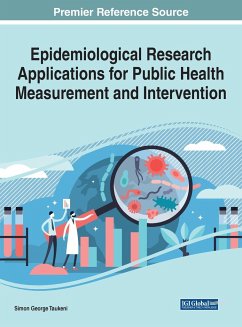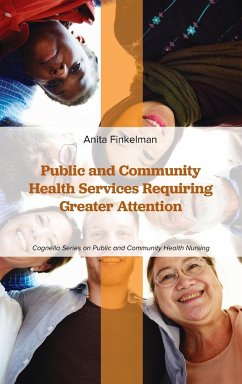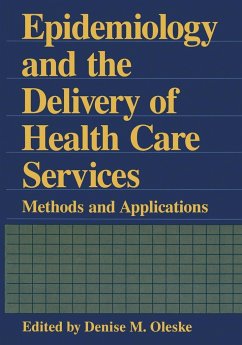
Epidemiology and Health Services
Versandkostenfrei!
Versandfertig in 1-2 Wochen
54,99 €
inkl. MwSt.

PAYBACK Punkte
27 °P sammeln!
What is the relevance of epidemiology to decision-making in the health services? If our ability to launch large-scale experimental studies of health services is limited, what are some alternative approaches to study design? How can we best make use of routinely collected data from health information systems? How can we best synthesize information to make more reasonable inferences? These are some of the many questions that the authors of this volume answer in a comprehensive and lucid manner. Epidemiology and Health Services is different from other books in the field. Many books and specialize...
What is the relevance of epidemiology to decision-making in the health services? If our ability to launch large-scale experimental studies of health services is limited, what are some alternative approaches to study design? How can we best make use of routinely collected data from health information systems? How can we best synthesize information to make more reasonable inferences? These are some of the many questions that the authors of this volume answer in a comprehensive and lucid manner. Epidemiology and Health Services is different from other books in the field. Many books and specialized publications have presented a comprehensive picture of epidemiologic methods, but they have not shown in a systematic way how these methods apply to health services. This book fills the gap, and goes even further by analyzing the strengths and limitations of epidemiologic methods in the context of health care delivery, and discussing approaches for making pertinent references in actual cases. Part I offers strategies for problem investigation, problem solving, and program development and evaluation. These introductory chapters also provide the necessary grounding in terminology. Part II applies the most important methods in epidemiology to health services research and development. Each of the nine chapters in this section begins with a theoretical overview of specific methods and then presents case studies. The cases are based on published investigations of health services and are followed by questions and discussions that guide readers through the most significant issues. The book addresses the needs of a broad spectrum of health professionals. It will help health serviceadministrators, managers and other professionals design and conduct evaluative and intervention research on the delivery of health services. It will also give epidemiology and public health students a wider perspective on the various applications of the discipline.














